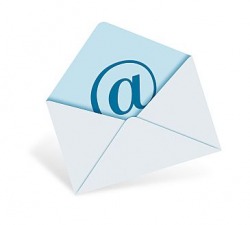|
I don't believe in email. I'm an old-fashioned girl. I prefer calling and hanging up. --Sarah Jessica Parker
There are lots of articles out there on standard email etiquette. By this point in human civilization's adoption of email technology, most people know the basics: don't use all caps, be careful with reply all, check your spelling, etc. This is pretty obvious stuff, and while there are still many, many perpetrators out there against these basic rules, most professionals have got them down. There are, however, more subtle issues that so many real professionals still get "wrong" that I want to flesh out here. All of the issues below I have personally experienced countless times with medium- and high-level professionals from major organizations around the world. I have also heard so many of my friends and colleagues vent about the same frustrations, so these problems seem pretty universal. Before I go into the actual problems or issues themselves, I will acknowledge that there are obviously reasons why people fall into these traps.Yes, they're extremely busy. Yes, they get 500 emails per day. Yes, messing up or not acknowledging a small part of your email request is not a big deal. However, I would argue that it's better to respond to emails a bit more slowly (while giving notice/setting appropriate expectations) and in a more respectful, professional manner than to answer emails in 10 seconds from a BlackBerry and completely miss a point in a client's request. My grandfather has a Russian expression he loves to use for this type of behavior. It's transliterated as, "Tapi Lapi." I don't know of an equivalent expression in English, but it basically means doing things haphazardly and quickly just to get them out of the way without taking care to do them correctly and thoughtfully. OK, enough background. Here are the main categories of issues and corresponding tips that I want to flesh out. Promptness
Completeness
Clarity
By being more prompt, complete, and clear with your emails, you'll show a high level of respect to the people you work with and will deal with your email and resulting work in a much more efficient and effective manner.
2 Comments
Another great article to archive. I would really need to put promptness, completeness, and clarity into practice :-)
Reply
Max
8/8/2010 01:57:09 pm
Thanks, Sherman! I appreciate your support.
Reply
Your comment will be posted after it is approved.
Leave a Reply. |
Archives
June 2024
Categories
All
Subscribe |

 RSS Feed
RSS Feed
